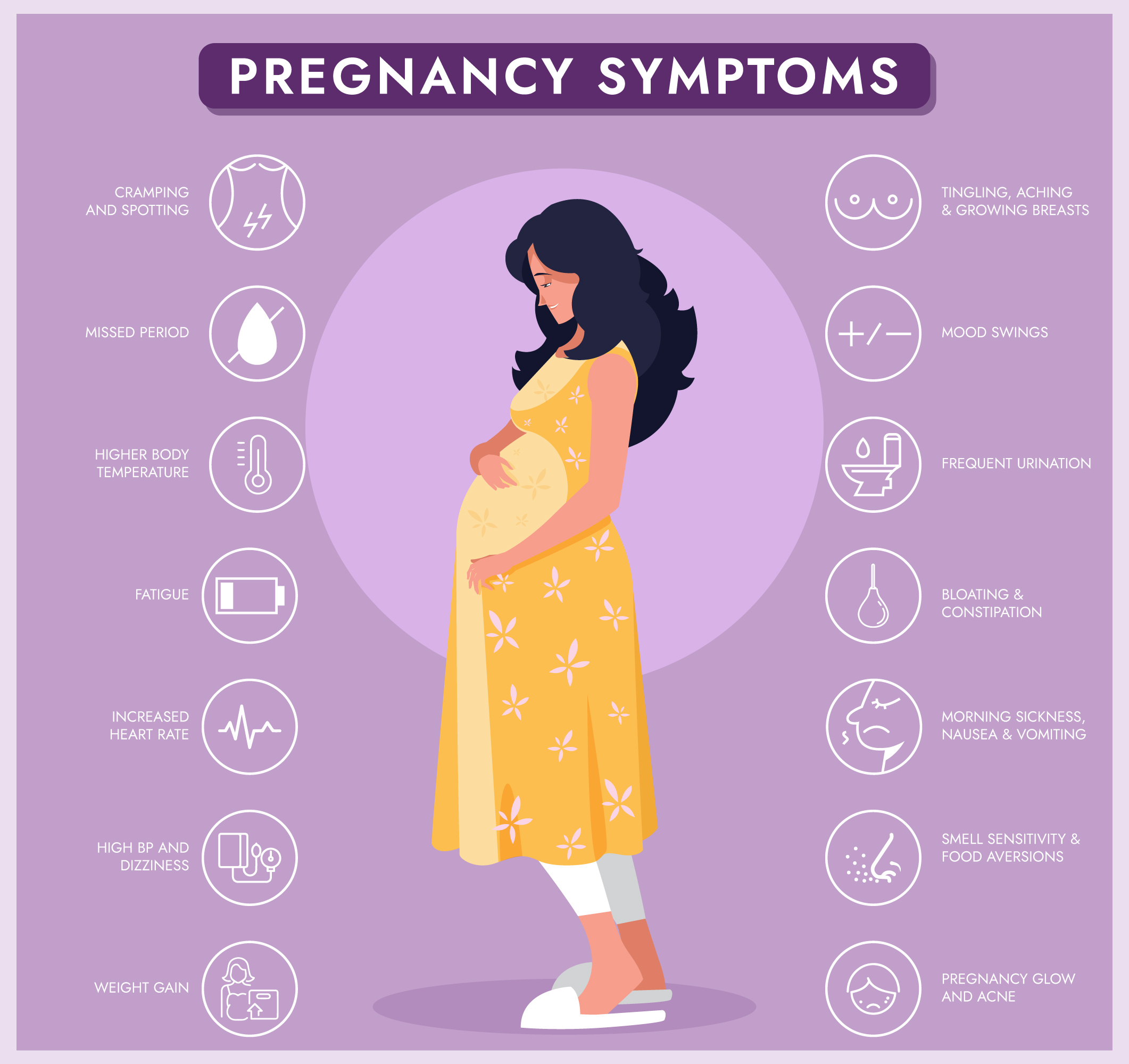


Many women feel quite intuitive when they have become pregnant. This special feeling is probably due to the much greater amounts of female hormones experienced by a woman only when she is pregnant.
However, there are also a range of physical indications that you've become pregnant. Some of these "signs of pregnancy" will be explained in more detail below.
Missed period
Periods are normally missed within the first 2 weeks of fertilization, and your period will hereafter normally be missed for the remainder of your pregnancy. However, some women may experience slight periods even if they are pregnant.
Furthermore, you should be aware that there may also be reasons other than pregnancy for missing periods. Missed periods can thus also be due to illness, stress, exhaustion, worry, hormonal disturbances, stopping the contraceptive pill, substantial weight increase/loss, etc.
Missed periods are therefore not a definite sign of pregnancy.
Morning sickness
Pregnant women often begin to experience sickness approx. 5 weeks after fertilization. This sickness is generally most pronounced in the morning (which is why it's called "morning sickness"), but it may occur at any time of the day. Some women have a great deal of sickness during pregnancy, while other women do not experience sickness at all or only a little. For the majority, the sickness will cease around the 13th - 15th week of pregnancy.
Sickness can, however, also be due to other reasons, including nervousness, food poisoning, not eating enough, etc.
Tension in the breasts
Just a few days after fertilization, a change can take place in the breasts. They grow, feel heavier and become tense. The nipples become more sensitive and may darken, and the blood vessels become more visible over the whole of the chest.
Frequent urination
Even if the amount of urine does not increase, pregnant women will often experience a greater and more frequent desire to urinate. This is because the blood supply to the abdominal organs increases during pregnancy, which affects the bladder and makes it irritable so it attempts to empty itself of the smallest amount of urine.
Frequent urination may register just one week after fertilization.
Changes in eating habits and a change in the sense of smell
The increasing hormone level during pregnancy may mean that a woman experiences another taste in her mouth, often described as metallic. This change in taste means that a woman may suddenly experience that foods she previously liked seem disgusting.
The sense of smell also often changes during pregnancy. It becomes particularly sensitive, and well-known smells of food, perfume, etc. may therefore be experienced as nauseating during pregnancy.
Confirmation of pregnancy
If you suspect you are pregnant, you should try to get confirmation of pregnancy as soon as possible.
Confirmation of pregnancy may be obtained using a pregnancy test, which can either be done at home, or at the doctor's.
Test using the home test
The majority of women choose to do the pregnancy test at home, where you don't need to be nervous, and where you are sure that the "news" can be kept secret.
The pregnancy test, which you can purchase now today, is safe and easy to use. Since it also comprises the same types of test used by the doctor, there is nothing to prevent you from doing the pregnancy test at home, but if the test is positive, you should contact your doctor immediately.
Test at the doctor's
If you suspect you are pregnant, you can go to your doctor and have a pregnancy test carried out. The doctor will ask you to bring along a urine sample for use during the test.
If the pregnancy test is positive, your doctor will perform a gynecological examination. Here, your doctor will examine the physical signs of pregnancy more closely. Your doctor will, however, only be able to give you a totally definite answer on the basis of a gynecological examination when the pregnancy symptoms are clear, i.e. around four weeks after fertilization.
Note: Please also check your spam or junk email folder.